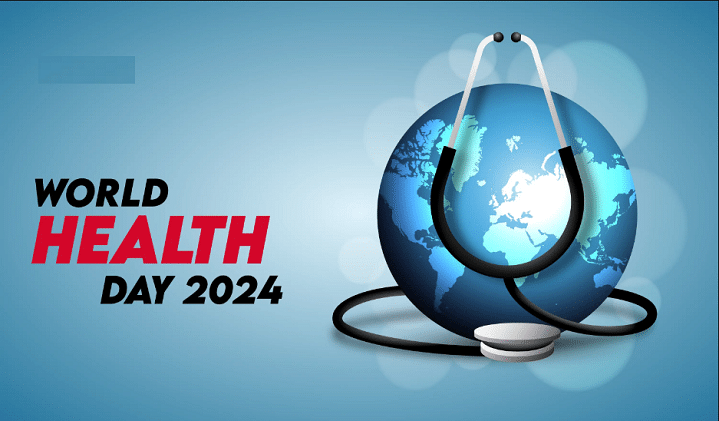World Health Day 2024: Universal Health Coverage for All

world health day theme 2024
World Health Day is celebrated annually on April 7th, marking the anniversary of the World Health Organization’s founding in 1948. Each year, the day focuses on a specific theme to raise awareness and promote action on important public health issues. For 2024, the theme is “Universal Health Coverage for All,” highlighting the need for accessible, equitable, and high-quality healthcare services worldwide.
Read More: https://photosqueen.org/
Understanding Universal Health Coverage (UHC)
What is Universal Health Coverage?
Universal Health Coverage (UHC) ensures that all individuals and communities have access to essential health services without financial hardship. UHC encompasses a wide range of services, including preventive, promotive, curative, rehabilitative, and palliative care.
Key Components of UHC
- Equity in Access: Everyone should have access to the health services they need, regardless of their socioeconomic status, geographical location, or any other potential barriers.
- Quality of Services: Health services should be of high quality, ensuring that they are effective and safe.
- Financial Protection: People should be protected from financial risk associated with paying for health services, preventing them from falling into poverty due to medical expenses.
The Importance of Universal Health Coverage
Health as a Human Right
UHC is rooted in the belief that health is a fundamental human right. Everyone, regardless of their circumstances, should have the opportunity to achieve the highest possible standard of health.
Promoting Health Equity
UHC aims to reduce health disparities by ensuring equitable access to health services for all, particularly vulnerable and marginalized populations.
Economic and Social Benefits
Investing in UHC has significant economic and social benefits. A healthier population leads to increased productivity, economic growth, and social stability. Moreover, UHC can reduce poverty levels by preventing catastrophic health expenditures.
Challenges to Achieving Universal Health Coverage
Financial Constraints
Many countries face financial challenges in providing comprehensive health coverage for their populations. Limited resources and competing priorities can hinder the implementation of UHC.
Infrastructure and Workforce Shortages
A lack of healthcare infrastructure and skilled workforce can impede the delivery of quality health services. In order to achieve UHC, these shortages must be addressed.
Inequitable Distribution of Resources
In many regions, health resources are distributed unevenly, with rural and underserved areas often lacking access to essential services. Overcoming these disparities is essential for ensuring equitable access to healthcare.
Strategies for Advancing Universal Health Coverage
Strengthening Health Systems
Robust health systems are the backbone of UHC. Strengthening health systems involves improving service delivery, financing, and governance to ensure that they are efficient, equitable, and sustainable.
Expanding Access to Essential Medicines and Technologies
Access to essential medicines and health technologies is crucial for UHC. Efforts should be made to ensure their availability, affordability, and quality, particularly in low- and middle-income countries.
Enhancing Health Financing
Innovative health financing models are needed to mobilize resources for UHC. This includes exploring new funding sources, improving efficiency in health spending, and implementing equitable financing mechanisms.
Promoting Health Literacy and Community Engagement
Empowering individuals and communities to take charge of their health is vital for UHC. Health literacy initiatives and community engagement can enhance the uptake of health services and promote healthy behaviors.
The Role of Global Collaboration
International Partnerships
Global collaboration is essential for achieving UHC. International organizations, governments, and other stakeholders must work together to share knowledge, resources, and best practices.
Addressing Global Health Challenges
Global health challenges, such as pandemics and climate change, require coordinated efforts to ensure that UHC goals are met. Collaborative action can help mitigate the impact of these challenges on health systems.
Strengthening Political Commitment
Political will is crucial for advancing UHC. Advocacy efforts should focus on garnering support from political leaders to prioritize health in national and international agendas.
Conclusion
World Health Day 2024 serves as a reminder of the importance of Universal Health Coverage for all. Achieving UHC requires collective action, innovative solutions, and unwavering commitment from all sectors of society. By working together, we can build a future where everyone has access to the health services they need, ensuring a healthier, more equitable world for generations to come.




